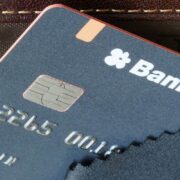
Africa’s financial landscape is undergoing a rapid transformation, driven by mobile money, fintech innovation, and the increasing adoption of digital platforms. However, challenges like financial exclusion, cross-border inefficiencies, fraud, and lack of transparency still hinder broader economic growth. Blockchain technology—best known as the backbone of cryptocurrencies—is emerging as a powerful tool to address these issues and revolutionize Africa’s financial systems and security.
What is Blockchain, and Why Does it Matter?
At its core, blockchain is a decentralized digital ledger that records transactions in a transparent, secure, and tamper-proof way. Unlike traditional financial systems that rely on centralized intermediaries, blockchain enables peer-to-peer transactions with built-in security and trust.
In the African context, where trust in financial institutions can be fragile and infrastructure uneven, blockchain offers a way to:
-
Increase transparency,
-
Reduce fraud and corruption,
-
Enable financial inclusion, and
-
Enhance cross-border efficiency.
1. Financial Inclusion: Banking the Unbanked
Over 350 million Africans remain unbanked, particularly in rural areas where traditional banking services are limited. Blockchain-powered platforms can bridge this gap by enabling people to:
-
Open decentralized wallets with only a mobile device,
-
Access microloans and insurance without collateral or credit history,
-
Store and send value securely without intermediaries.
Projects like Kotani Pay in Kenya and Leaf Global in Rwanda are using blockchain to create low-cost, user-friendly platforms that serve refugees, informal workers, and people without ID documents—groups often excluded from the formal economy.
2. Cross-Border Payments and Remittances
Cross-border payments in Africa are notoriously expensive and slow. Intra-African transactions can take days and carry fees as high as 20%. Blockchain can streamline this process by:
-
Eliminating intermediaries,
-
Reducing transaction fees,
-
Ensuring real-time settlements.
Solutions like Ripple, Stellar, and Sardis are working with African fintechs to build blockchain-based remittance corridors that reduce costs and enhance financial connectivity between countries.
3. Fraud Prevention and Transaction Security
Fraud is a major concern in many African financial systems. Blockchain’s immutability ensures that once a transaction is recorded, it cannot be altered or erased. This makes it an ideal tool for:
-
Anti-money laundering (AML) tracking,
-
Know Your Customer (KYC) compliance,
-
Preventing double-spending or forged records.
For example, BitLand in Ghana uses blockchain to protect land registry data, reducing disputes and fraud in property transactions—a financial issue with deep social consequences.
4. Strengthening Government and Institutional Trust
Blockchain can also be used to enhance transparency in government disbursements, subsidies, and public sector salaries—areas historically vulnerable to corruption. With blockchain:
-
Every transaction is traceable,
-
Funds are less likely to be diverted or mismanaged,
-
Citizens can verify how public money is being spent.
In Nigeria and Sierra Leone, pilot programs have explored blockchain-based systems for voting, identity management, and government-to-person (G2P) payments with promising early results.
5. Tokenization of Assets and New Investment Models
Blockchain allows for the tokenization of real-world assets—like real estate, art, or commodities—into digital tokens that can be traded, split, or invested in. This:
-
Democratizes access to investment opportunities,
-
Allows fractional ownership of high-value assets,
-
Supports crowdfunding and peer-to-peer lending.
African startups like TandaPay and Tingo are exploring such models to give everyday people access to markets previously reserved for institutional investors.
Challenges to Adoption
Despite its promise, blockchain faces several hurdles in Africa:
-
Regulatory uncertainty in many countries,
-
Low blockchain literacy among the general public,
-
Limited infrastructure for internet and smartphone penetration in rural areas.
Governments, regulators, and the private sector must collaborate to create enabling environments—through education, regulation, and digital infrastructure—to support blockchain’s growth.
The Road Ahead: Africa’s Unique Blockchain Opportunity
Africa has an opportunity to become a global leader in blockchain innovation by leapfrogging legacy systems. With its youthful population, mobile-first economy, and urgent need for financial transformation, the continent is ripe for a decentralized future.
As blockchain matures, its impact on financial systems and security will only deepen—driving transparency, expanding access, and building resilient economies. In doing so, it could redefine trust, ownership, and value across the continent.
In Africa’s blockchain revolution, the future of finance is not just digital—it’s decentralized, inclusive, and secure.
Read more on Tech Gist Africa:
The Role of Women in Africa’s Technology and Innovation Ecosystem
The Future of Agriculture in Africa: Technology Solutions for Sustainable Farming and Food Security
The Role of African Governments in Creating a Favorable Environment for Tech Innovation










Comments